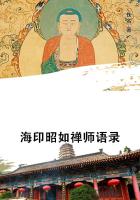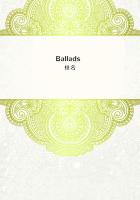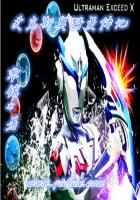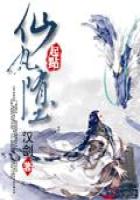35. Krug: Entwurf eines neuen Organon der Philosophie (Meissen, 1801), pp. 75, 76; Rixner:
Handbuch d. Geschichte d. Philosophie, Vol. III. § 157, p. 349.
Section Three: Recent German Philosophy D. Schelling.
It was Schelling, finally, who made the most important, or, from a philosophic point of view, the only important advance upon the philosophy of Fichte; his philosophy rose higher than that of Fichte, though undoubtedly it stood in close connection with it; indeed, he himself professes to be a Fichtian. Now the philosophy of Schelling from the first admitted the possibility of a knowledge of God, although it likewise started from the philosophy of Kant, which denies such knowledge.
At the same time Schelling makes Jacobi's principle of the unity of thought and Being fundamental, although he begins to determine it more closely.(1) To him concrete unity is this, that the finite is no more true than the infinite, the subjective idea no more than objectivity, and that combinations in which both untruths are brought together in their independence in relation to one another, are likewise combinations of untruths merely. Concrete unity can only be comprehended as process and as the living movement in a proposition. This inseparability is in God alone; the finite, on the other hand, is that which has this separability within it. In so far as it is a truth it is likewise this unity, but in a limited sphere, and for that reason in the separability of both moments.
Frederick Wilhelm Joseph Schelling, born on the 27th January, 1775, at Schorndorf(2) in Würtemberg, studied in Leipzig and Jena, where he came to be on terms of great intimacy with Fichte. In the year 1807 he became secretary of the Academy of Science in Munich. We cannot with propriety deal fully with his life, for he is still living.(3)Schelling worked out his philosophy in view of the public. The series of his philosophic writings also represents the history of his philosophic development and the gradual process by which he raised himself above the Fichtian principle and the Kantian content with which he began. It does not thus contain a sequence of separately worked out divisions of Philosophy, but only successive stages in his own development. If we ask for a final work in which we shall find his philosophy represented with complete definiteness none such can be named. Schelling's first writings are still quite Fichtian, and it is only by slow degrees that he worked himself free of Fichte's form. The form of the ego has the ambiguity of being capable of signifying either the absolute Ego or God, or ego in my particularity;(4) this supplied the first stimulus to Schelling. His first and quite short work of four sheets which he wrote in 1795 at Tübingen, while still at the university, was called, “On the Possibility of any Form of Philosophy” ; it contains propositions respecting the Fichtian philosophy only. The next work, “Of the Ego as principle of Philosophy, or on the Unconditioned in Human Knowledge” (Tübingen, 1795), is likewise quite Fichtian; in this case, however, it is from a wider and more universal point of view, since the ego is therein grasped as an original identity.(5) We find, however, a summary of the Fichtian principle and the Kantian mode of presentation: “It is only by something being originally set in opposition to the ego, and by the ego being itself posited as the manifold (in time), that it is possible for the ego to get beyond the unity which belongs to it of merely being posited, and that, for example, it posits the same content on more than one occasion.” (6) Schelling then passed on to natural philosophy, adopted Kantian forms and reflective determinations, such as those of repulsion and attraction, from Kant's “Metaphysics of Nature,” and likewise dealt with quite empirical phenomena in expressions taken from Kant. All his first works on this subject come under this category, viz.” “Ideas towards a Philosophy of Nature,” 1797; “On the World-Soul,” 1798, the second edition of which possesses appendices which are entirely inconsistent with what goes before. In the writings of Herder and Kielmeyer(7) we find sensibility, irritability, and reproduction dealt with, as also their laws, such as that the greater the sensibility the less the irritability, &c. - just as the powers or potencies were dealt with by Eschenmayer. It was only later on in relation to these that Schelling first apprehended nature in the categories of thought, and made general attempts of a more definite character in the direction of greater scientific development. It was only through what had been accomplished by these men that he was enabled to come into public notice so young. The spiritual and intellectual side, morality and the state, he represented on the other hand purely in accordance with Kantian principles: thus in his “Transcendental Idealism,” although it was written from a Fichtian point of view, he goes no further than Kant did in his “Philosophy of Rights” and his work “On Eternal Peace.” Schelling, indeed, later on published a separate treatise on Freedom, deeply speculative in character; this, however, remains isolated and independent, and deals with this one point alone; in Philosophy, however, nothing isolated can be worked out or developed. In the various presentations of his views Schelling on each occasion began again from the beginning, because, as we may see, what went before did not satisfy him; he has ever pressed on to seek a new form, and thus he had tried various forms and terminologies in succession without ever setting forth one complete and consistent whole. His principal works in this connection are the “First Sketch of a System of Natural Philosophy,” 1799; the “System of Transcendental Idealism,”


